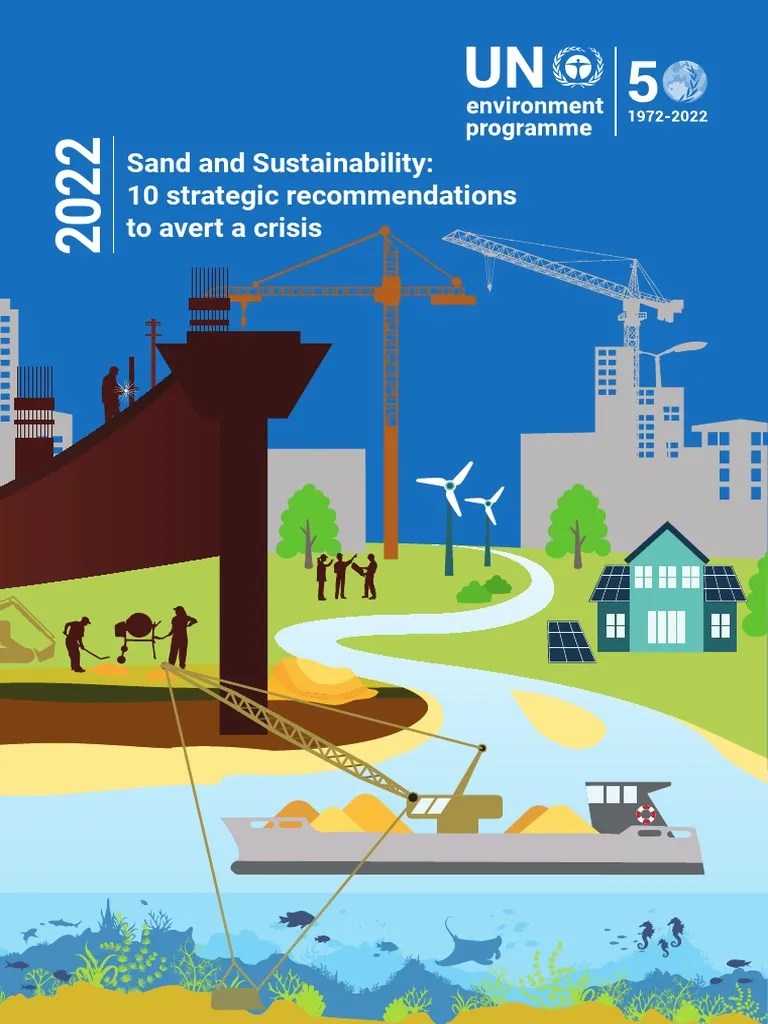“Eco-Friendly Beach Vacations: Sun, Sand, and Sustainability
Related Articles Eco-Friendly Beach Vacations: Sun, Sand, and Sustainability
- Unveiling Europe’s Artistic Soul: Tailored Journeys For The Discerning Art Lover
- Budget-Friendly Eco-Travel: Exploring The World Sustainably Without Breaking The Bank
- Budget Backpacking Trips Itinerary
- Best Wellness Travel In The USA
- Authentic Luxury: Beyond The Glitz, Embracing The Soul Of Travel
Introduction
Today, we’re excited to unravel an engaging topic: Eco-Friendly Beach Vacations: Sun, Sand, and Sustainability. Join us as we navigate insights that inform, inspire, and open new perspectives for our readers.
Table of Content
Eco-Friendly Beach Vacations: Sun, Sand, and Sustainability
The allure of a beach vacation is timeless. The sun-kissed skin, the rhythmic sound of waves, the soft caress of sand between your toes – it’s an escape that rejuvenates the mind, body, and soul. However, the traditional beach vacation often comes at a cost to the very environment that makes it so appealing. From plastic waste to carbon emissions, the impact can be significant.
Fortunately, a new wave of travelers is seeking a more sustainable way to enjoy the coast. Eco-friendly beach vacations are on the rise, offering a guilt-free way to soak up the sun while minimizing your environmental footprint. This article delves into the world of sustainable beach travel, exploring the attractions, practices, and destinations that prioritize the health of our oceans and coastlines.
The Importance of Eco-Friendly Beach Vacations
Beaches and coastal ecosystems are incredibly fragile. They are vulnerable to a range of environmental threats, including:
- Plastic Pollution: Beaches are often littered with plastic waste, which can harm marine life, contaminate the food chain, and degrade the natural beauty of the coastline.
- Carbon Emissions: Travel to and from beach destinations, as well as activities like motorized water sports, contribute to greenhouse gas emissions, exacerbating climate change and its impact on coastal regions.
- Habitat Destruction: Coastal development, such as hotels and resorts, can destroy critical habitats like mangrove forests and coral reefs, which are essential for biodiversity and coastal protection.
- Water Pollution: Runoff from agriculture, sewage, and industrial activities can pollute coastal waters, harming marine life and making beaches unsafe for swimming.
- Over-tourism: Popular beach destinations can suffer from over-tourism, leading to overcrowding, resource depletion, and damage to local ecosystems.
Eco-friendly beach vacations aim to mitigate these negative impacts by promoting responsible tourism practices that protect the environment, support local communities, and preserve the natural beauty of coastal regions.
Key Elements of Eco-Friendly Beach Vacations
A truly eco-friendly beach vacation encompasses a range of sustainable practices:
-
Sustainable Accommodation:
- Eco-Resorts and Hotels: Look for accommodations that have implemented sustainable practices, such as energy and water conservation, waste reduction, and the use of eco-friendly materials. Certifications like LEED (Leadership in Energy and Environmental Design) or Green Globe can be good indicators.
- Locally Owned Businesses: Supporting locally owned hotels and guesthouses helps to keep tourism dollars within the community and reduces the environmental impact associated with large, multinational corporations.
- Minimalist Design: Choose accommodations that prioritize simplicity and functionality, minimizing the use of resources and reducing the need for excessive amenities.
-
Responsible Transportation:
- Reduce Air Travel: Air travel is a major contributor to carbon emissions. Consider choosing a beach destination that is closer to home or opting for alternative modes of transportation, such as trains or buses.
- Public Transportation: Once you arrive at your destination, utilize public transportation, such as buses, trams, or ferries, to get around.
- Walking and Biking: Explore the local area on foot or by bike. This is a great way to reduce your carbon footprint, get some exercise, and experience the destination in a more intimate way.
- Electric Vehicles: If you need to rent a car, opt for an electric or hybrid vehicle.
-
Sustainable Activities:
- Snorkeling and Diving: Explore the underwater world responsibly by choosing tour operators that follow sustainable diving practices, such as avoiding touching coral reefs and respecting marine life.
- Kayaking and Paddleboarding: Enjoy the ocean without the noise and pollution of motorized water sports.
- Hiking and Nature Walks: Explore coastal trails and nature reserves on foot, taking in the natural beauty of the area while minimizing your impact on the environment.
- Beach Cleanups: Participate in organized beach cleanups or simply pick up any trash you see while enjoying the beach.
- Wildlife Watching: Observe marine life responsibly by choosing tour operators that follow ethical guidelines and avoid disturbing animals in their natural habitat.
-
Mindful Consumption:
- Reduce, Reuse, Recycle: Minimize your consumption of single-use plastics by bringing your own reusable water bottle, coffee cup, and shopping bags.
- Support Local Businesses: Shop at local markets and stores, and eat at restaurants that source their ingredients locally.
- Eco-Friendly Products: Use reef-safe sunscreen and other eco-friendly personal care products to avoid polluting the water and harming marine life.
- Minimize Food Waste: Be mindful of your food consumption and avoid ordering more than you can eat. Compost any food scraps whenever possible.
-
Respect for Local Culture:
- Learn About Local Customs: Before your trip, research the local culture and customs to ensure that you are respectful of the local community.
- Support Local Artisans: Purchase handmade crafts and souvenirs from local artisans to support the local economy and preserve traditional skills.
- Engage with the Community: Take the time to interact with local people and learn about their way of life.
- Dress Respectfully: Dress modestly when visiting religious sites or interacting with local people.
Eco-Friendly Beach Vacation Destinations
Here are some examples of beach destinations that are committed to sustainability:
-
Costa Rica: This Central American nation is a pioneer in ecotourism, with numerous eco-lodges, national parks, and protected areas. Its commitment to conservation and sustainable tourism practices makes it an ideal destination for eco-conscious beach lovers.
- Attractions: Manuel Antonio National Park, Corcovado National Park, Tortuguero National Park.
- Activities: Wildlife watching, surfing, hiking, zip-lining, snorkeling, and diving.
-
Palawan, Philippines: This island province boasts stunning beaches, crystal-clear waters, and diverse marine life. The local government has implemented strict environmental regulations to protect its natural resources, making it a model for sustainable tourism in Southeast Asia.
- Attractions: El Nido, Coron, Puerto Princesa Subterranean River National Park.
- Activities: Island hopping, snorkeling, diving, kayaking, and exploring caves.
-
Bora Bora, French Polynesia: Known for its luxurious overwater bungalows, Bora Bora is also making strides in sustainable tourism. Many resorts have implemented eco-friendly practices, such as solar power, water conservation, and waste reduction.
- Attractions: Mount Otemanu, Matira Beach, Coral Gardens.
- Activities: Snorkeling, diving, swimming, hiking, and exploring the island by boat.
-
Saba, Caribbean Netherlands: This small island is a hidden gem for eco-conscious travelers. It is known for its pristine coral reefs, lush rainforests, and commitment to sustainable tourism.
- Attractions: Saba National Marine Park, Mount Scenery, The Bottom (capital city).
- Activities: Diving, snorkeling, hiking, birdwatching, and exploring the island’s unique ecosystem.
-
Vancouver Island, Canada: With its rugged coastline, pristine beaches, and abundant wildlife, Vancouver Island is a paradise for nature lovers. The island offers a range of eco-friendly accommodations and activities, making it an ideal destination for a sustainable beach vacation.
- Attractions: Pacific Rim National Park Reserve, Tofino, Victoria.
- Activities: Surfing, hiking, kayaking, whale watching, and exploring the island’s diverse ecosystems.
Tips for Planning an Eco-Friendly Beach Vacation
- Do Your Research: Before booking your trip, research the environmental policies and practices of the destination and the accommodations you are considering.
- Pack Light: Pack only what you need to minimize your luggage weight and reduce fuel consumption during transportation.
- Bring Your Own: Bring your own reusable water bottle, coffee cup, shopping bags, and toiletries to reduce your consumption of single-use plastics.
- Support Local Businesses: Shop at local markets and stores, and eat at restaurants that source their ingredients locally.
- Be Respectful: Respect the local culture and customs, and avoid behaviors that could harm the environment or disturb local communities.
- Leave No Trace: Pack out everything you pack in, and avoid leaving any trash behind.
- Educate Yourself: Learn about the local environment and the challenges it faces, and share your knowledge with others.
The Future of Eco-Friendly Beach Vacations
As awareness of environmental issues grows, the demand for eco-friendly beach vacations is likely to increase. This trend will drive innovation in sustainable tourism practices and encourage more destinations to prioritize environmental protection.
Technological advancements will also play a role in the future of eco-friendly beach vacations. For example, solar-powered boats and electric vehicles will become more common, reducing carbon emissions and noise pollution. Smart technologies can also be used to monitor water quality, track waste management, and optimize energy consumption.
Ultimately, the future of eco-friendly beach vacations depends on the collective efforts of travelers, tourism operators, and governments. By working together, we can ensure that future generations can enjoy the beauty and benefits of our beaches and coastlines.
Conclusion
Eco-friendly beach vacations are not just a trend; they are a necessity for preserving the health of our oceans and coastlines. By making conscious choices about our travel habits, we can minimize our environmental impact, support local communities, and enjoy the beauty of the beach in a sustainable way. So, the next time you plan a beach vacation, consider choosing an eco-friendly option and help protect the planet for future generations.





